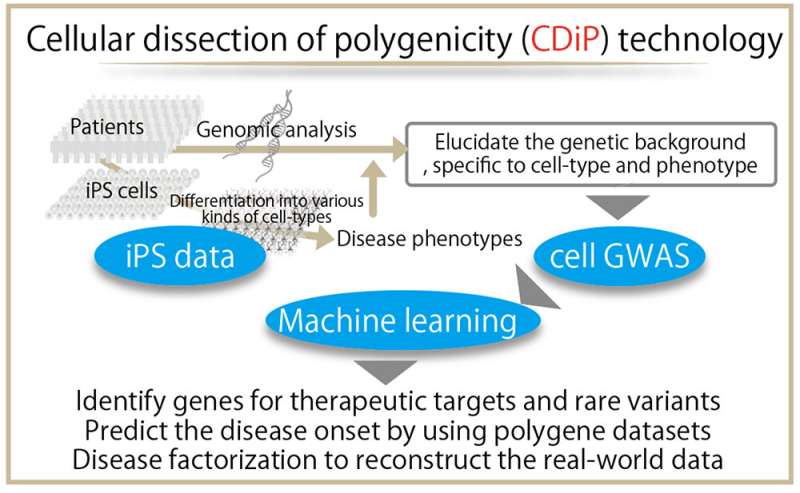Dissection of the polygenic architecture using iPSC lines derived from Alzheimer's disease

A research team led by CiRA Professor Haruhisa Inoue has developed a cellular dissection of polygenicity (CDiP) technology, which enables the reconstruction of the clinical conditions of Alzheimer's disease (AD) from patients' genetic data by using iPS cells and artificial intelligence.
First, the group used the "iPS Cohort," which consists of iPS cells generated from 102 patients with sporadic AD, and then the iPS cells were differentiated into cerebral cortex neurons. A genome-wide analysis on the neuronal production of amyloid β was conducted to understand the cellular polygenicity of sporadic AD by decomposing the complicated AD pathology into cell types and phenotypes, which show pathological traits.
The researchers revealed genetic loci as genetic risks, identified a rare variant and therapeutic targets of AD, and succeeded in machine learning-based prediction of the clinical conditions by using the data of AD cohort studies (ADNI and J-ADNI). This research results, achieved by CDiP technology, are expected to contribute to prediction and avoidance of sporadic AD disease conditions.
More information: Takayuki Kondo et al, Dissection of the polygenic architecture of neuronal Aβ production using a large sample of individual iPSC lines derived from Alzheimer's disease patients, Nature Aging (2022). DOI: 10.1038/s43587-021-00158-9



















